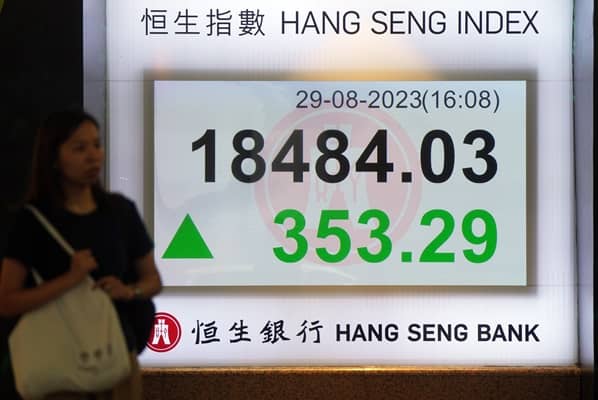Bussiness
The Hang Seng Index rises – London Business News | Londonlovesbusiness.com

The Hang Seng Index has been on a tear. After climbing back above the 17,000 mark last Thursday and breaking out of a downward trend that had been in place since mid-May on Friday, it managed to close above its 50-day moving average yesterday.
To me, this rally is largely driven by strong earnings from tech giants in the Hong Kong market, set against a backdrop of global risk assets being broadly favoured. If buying interest remains robust, I will be watching the 18,300 level for any signs of resistance.
On the external front, as concerns over a U.S. recession have eased, the turbulence caused by the unwinding of yen carry trades has subsided, leading to a recovery in global risk market sentiment.
Global equities have gradually rebounded from the sharp sell-off in early August, with bullish momentum gaining traction. Given that the Hang Seng is largely driven by foreign capital, I believe that the broader rise in risk appetite across international markets is a key factor supporting the index’s upward trajectory.
Internally, cyclical sectors within the Hang Seng, particularly tech stocks like Tencent and http://JD.com, have posted stellar earnings. Additionally, companies in the internet, finance, and pharmaceuticals sectors have been aggressively buying back shares. With over 200 companies initiating buybacks so far this year, surpassing the total buyback amount for all of 2023, I think it’s clear that strong Q2 reports and ongoing buybacks are boosting shareholder returns and drawing in investors.
However, I’m cautious about how long this rally can last. Given that China’s economic momentum is still trying to get back on track, I view the foreign capital’s bets on Hong Kong’s earnings are likely short-term in nature. As the Hang Seng continues to rise, volatility is likely to increase, potentially reducing its attractiveness and leaving tech stocks vulnerable to significant corrections. If Chinese authorities roll out more supportive policies, I think the pharmaceutical, consumer, and dividend sectors could stand to benefit greatly.








